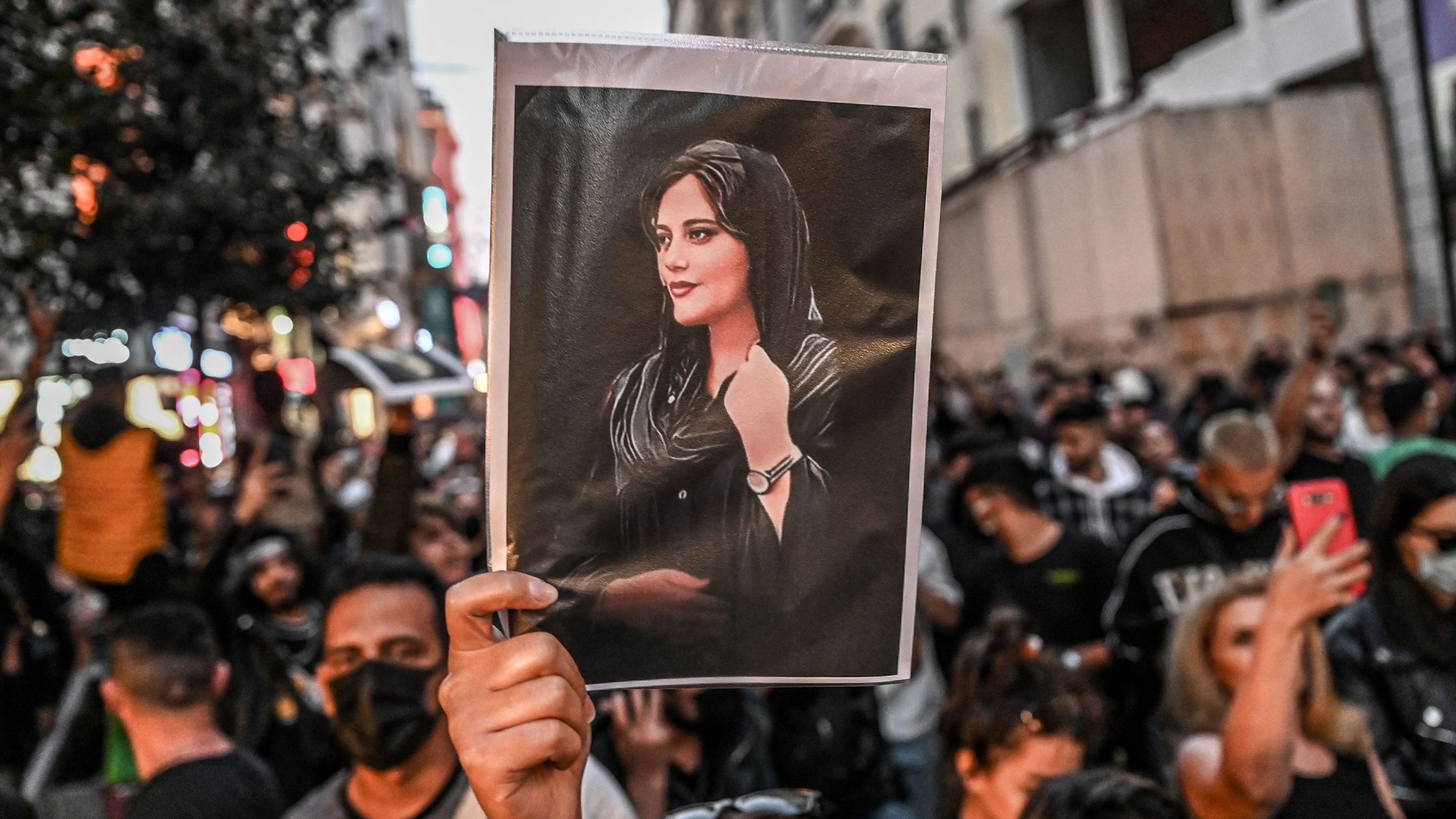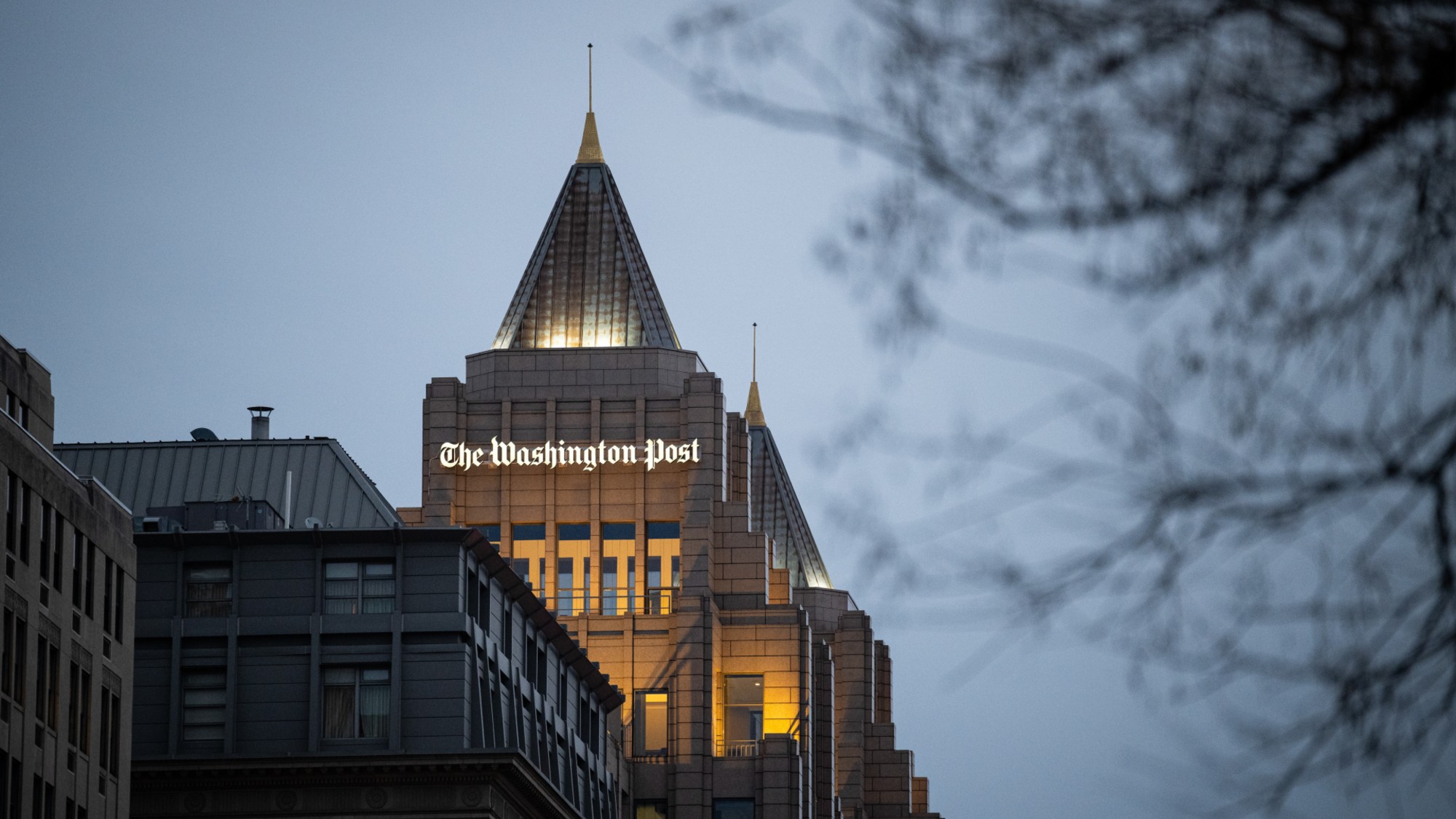Iran’s morality police and the hijab law
Reports that Iran’s morality police may be abolished denounced by Iranian activists as a “PR stunt”

A free daily email with the biggest news stories of the day – and the best features from TheWeek.com
You are now subscribed
Your newsletter sign-up was successful
Reports that Iran’s notorious morality police may have been abolished have been met with caution and scepticism as experts accuse the country’s regime of making “empty promises” to quell protests.
Responding to a question from a reporter over whether the country’s morality police – sometimes referred to as the “guidance patrol”, which is responsible for enforcing the country’s hijab laws – was being disbanded, Iranian Attorney General Mohammad Jafar Montazeri said that the morality police “has nothing to do with the judiciary” adding that “it was abolished by those who created it”.
The remarks were made during what The Washington Post called “a conspiracy-theory-laden speech blaming the anti-government unrest on Western countries” with the paper adding the comments “appeared to be referring to the relative absence of the morality police on the streets since protests against Iran’s clerical leaders broke out”.
The Week
Escape your echo chamber. Get the facts behind the news, plus analysis from multiple perspectives.

Sign up for The Week's Free Newsletters
From our morning news briefing to a weekly Good News Newsletter, get the best of The Week delivered directly to your inbox.
From our morning news briefing to a weekly Good News Newsletter, get the best of The Week delivered directly to your inbox.
‘Empty promises’
The so-called “guidance patrols” have been a “familiar sight” on the streets of Tehran since 2006, said France 24, when they were introduced during the presidency of the ultra-conservative Mahmoud Ahmadinejad. But clerical leadership had been strictly enforcing hijab rules “well before then”, said the broadcaster. Strict hijab laws have not always been in place in Iran, however – wearing the hijab became obligatory for all Iranian women in April 1983.

Montazeri’s remarks did not constitute “an official confirmation of disbandment” said The Washington Post, which said its dissolution “would require higher-level approval”.
Indeed, “hasty clarifications by state media” soon followed, said CNN, with government-controlled news outlets “keen to downplay” Montazeri’s comments. And from Iranian activists too, there was significant online “pushback” with many denouncing the alleged move as a “PR stunt” from the Iranian regime designed to silence protesters.
“When dictatorships know they’re in trouble they begin promising their citizens they will change who they are,” wrote Karim Sadjadpour, a senior fellow at the Carnegie Endowment for International Peace in Washington DC, on Twitter. He added that such “empty promises tend to embolden, rather than quell, popular demands for fundamental change”.
A free daily email with the biggest news stories of the day – and the best features from TheWeek.com
‘No guarantees it would halt unrest’
If Iran’s morality police were scrapped it would certainly “be a concession to the protesters”, said the BBC. But there are “no guarantees it would be enough to halt the unrest” that has rocked the country since the death of 22-year-old Mahsa Amini, who died in police custody in September.
One Iranian woman told the BBC World Service’s Newshour programme that dismantling the morality police would not end the protests. “Even the government saying the hijab is a personal choice is not enough. People know Iran has no future with this government in power. We will see more people from different factions of Iranian society, moderate and traditional, coming out in support of women to get more of their rights back.”
“Even if the morality police stop patrolling the streets, that alone would have no bearing on the hijab laws that govern women’s dress,” said Jason Rezaian in The Washington Post, who wrote that Iran has “plenty” of other agencies that “could enforce hijab if ordered to do so”.
And there is a danger that the news of the morality police’s alleged abolishment has “sucked up all the oxygen in the global conversation about Iran”, continued Rezaian. Thousands of retail businesses are participating in a three-day strike to protest against the regime. Meanwhile, the mass trials of protesters are under way and “beginning to lead to death sentences”. “These events are much more important – and much less noticed – than the non-story of the morality police.”
Sorcha Bradley is a writer at The Week and a regular on “The Week Unwrapped” podcast. She worked at The Week magazine for a year and a half before taking up her current role with the digital team, where she mostly covers UK current affairs and politics. Before joining The Week, Sorcha worked at slow-news start-up Tortoise Media. She has also written for Sky News, The Sunday Times, the London Evening Standard and Grazia magazine, among other publications. She has a master’s in newspaper journalism from City, University of London, where she specialised in political journalism.
-
 The week’s best photos
The week’s best photosIn Pictures An explosive meal, a carnival of joy, and more
-
 The ‘ravenous’ demand for Cornish minerals
The ‘ravenous’ demand for Cornish mineralsUnder the Radar Growing need for critical minerals to power tech has intensified ‘appetite’ for lithium, which could be a ‘huge boon’ for local economy
-
 Why are election experts taking Trump’s midterm threats seriously?
Why are election experts taking Trump’s midterm threats seriously?IN THE SPOTLIGHT As the president muses about polling place deployments and a centralized electoral system aimed at one-party control, lawmakers are taking this administration at its word
-
 Witkoff and Kushner tackle Ukraine, Iran in Geneva
Witkoff and Kushner tackle Ukraine, Iran in GenevaSpeed Read Steve Witkoff and Jared Kushner held negotiations aimed at securing a nuclear deal with Iran and an end to Russia’s war in Ukraine
-
 How corrupt is the UK?
How corrupt is the UK?The Explainer Decline in standards ‘risks becoming a defining feature of our political culture’ as Britain falls to lowest ever score on global index
-
 ‘The mark’s significance is psychological, if that’
‘The mark’s significance is psychological, if that’Instant Opinion Opinion, comment and editorials of the day
-
 Why the Bangladesh election is one to watch
Why the Bangladesh election is one to watchThe Explainer Opposition party has claimed the void left by Sheikh Hasina’s Awami League but Islamist party could yet have a say
-
 ‘My donation felt like a rejection of the day’s politics’
‘My donation felt like a rejection of the day’s politics’Instant Opinion Opinion, comment and editorials of the day
-
 How Iran protest death tolls have been politicised
How Iran protest death tolls have been politicisedIn the Spotlight Regime blames killing of ‘several thousand’ people on foreign actors and uses videos of bodies as ‘psychological warfare’ to scare protesters
-
 ‘It may portend something more ominous’
‘It may portend something more ominous’Instant Opinion Opinion, comment and editorials of the day
-
 The high street: Britain’s next political battleground?
The high street: Britain’s next political battleground?In the Spotlight Mass closure of shops and influx of organised crime are fuelling voter anger, and offer an opening for Reform UK